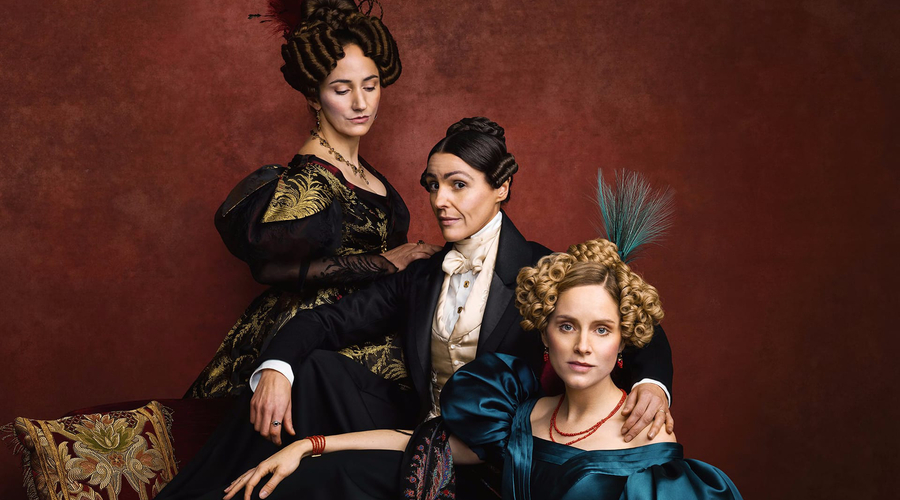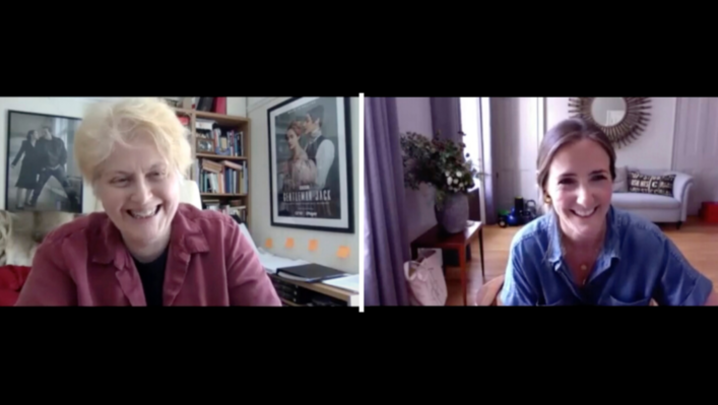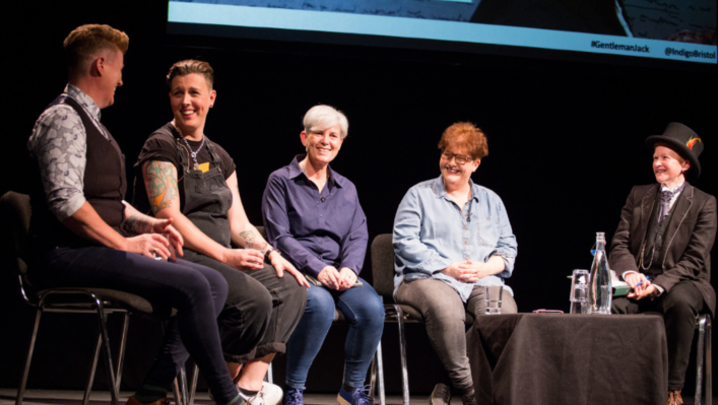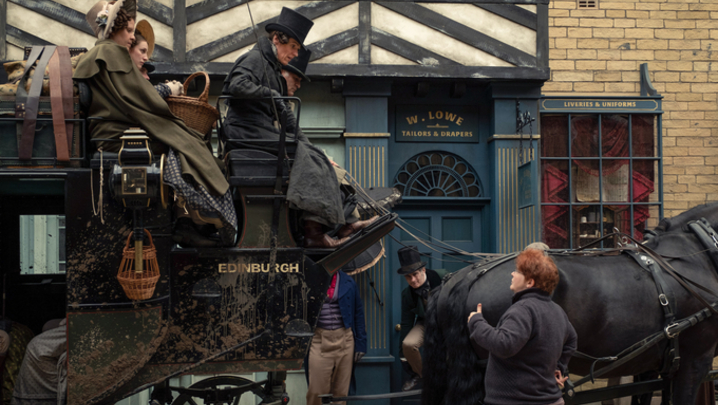Sally Wainwright’s TV drama has changed thousands of lives around the world, says Carole Solazzo
Halifax is the Lourdes for lesbians,” said producer-director and former Chair of RTS Yorkshire Fiona Thompson at “Celebrating Gentleman Jack: Changing lives”.
Not a sentence many would have anticipated hearing, but this is only one of the consequences of the so-called “Gentleman Jack effect”.
Anne Lister, Sally Wainwright’s eponymous Gentleman Jack, born in 1791, was a Halifax industrialist, landowner, diarist and self-assured lesbian, and hero of possibly the most important TV drama of recent times.
Just how important, to whom, and why, is what was being celebrated. Pat Esgate, lead organiser of the Anne Lister Birthday Week festival (ALBW), grew up at a time “when the only media ‘representation’ of someone like me typically ended in what we now call ‘Death by Lesbian’”. In 1988, the Conservatives brought in Section 28, prohibiting local government in Britain from “promoting homosexuality by teaching or by publishing material”.
In her welcoming address, Esgate contrasted that with what happened when, in 2019, BBC One broadcast the first series of Gentleman Jack: “[The drama] shot us into the stratosphere. Not only did we have bold, beautifully written characters, we had a butch lesbian and her polar opposite, enjoying a love story that ended with all the panache of a Jane Austen novel. … It changed tens of thousands of lives, in a visceral, life-affirming manner, all around the globe.”
Testament to that was the Leeds-based Screenhouse documentary Gentleman Jack Changed My Life for BBC One, here given another screening. It followed the journeys of women who, as a result of the drama, came out, some to themselves for the first time, and to their families and friends.
Screenhouse’s CEO Barbara Govan, currently negotiating international sales for the documentary, told of how much she personally had gained by making it. Working with an all-lesbian crew, initially “we used the budget to go in without cameras to establish contact and trust… so important, especially with ‘Trixie’ and ‘Pauline’ being from an older generation”.
These two women had been forced by societal pressures to separate, and “that drama gave two people, who were always meant for each other, the courage, after 33 years apart, to be together”.
Two of the other participants, Yvonne and Sami, updated the audience on their progress. Yvonne, who came out on screen to her children has since left her church but kept her faith and, encouraged by her son to start dating, now has a partner.
Sami’s story was as much a journey to self-acceptance as her mum’s journey towards accepting her. Before, if Sami was going out on a date she would avoid the subject, which “makes you feel strange and not quite human,” she said. Her relationship with her mum “is now much healthier”.
Gentleman Jack has inspired a huge following – the “Ann(e)dom” – which, according to Esgate, initially “drew people from 14 countries to Halifax [for ALBW], and this year is on track for 18 countries”. It also sparked a worldwide campaign to get the drama recommissioned after the show was axed when co-producer HBO withdrew.
Campaigner Jo Clarke was “so inspired by the documentary to see what a TV show had done for so many people…. I knew we couldn’t let this lie.” Scores of volunteers, from Nelson, New Zealand, to Nyack, New York, now work round the clock to “keep people connected, morale up, and Gentleman Jack trending”, organising events ranging from tea parties to choreographer Helen Hawkins’ flash-mob dance to an extraordinary 24-hour Anne Lister billboard in Times Square.
Esgate reminded the BBC: “You have a high-quality international hit… an incredibly passionate fan base… a programme that absolutely fits within your equality, diversity and inclusion standards…. Representation matters.”
‘Celebrating Gentleman Jack: Changing Lives’ took place at York St John University on 23 February, and was co-produced by RTS Yorkshire’s Jane Hall.







